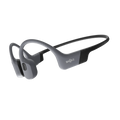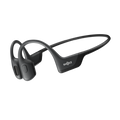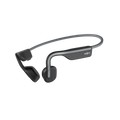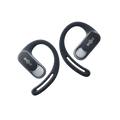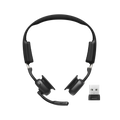If you’re thinking about a relay or have already signed up for one, then you’ve got some night running in your future! Sorry if that was a surprise, but don’t panic, we’re here for you! 😀
Nighttime running can be one of the most exciting parts of your relay experience - it feels foreign and provides an entirely different sensory experience. That unfamiliar experience is also what makes it one of the most challenging segments. As you train for your next relay, we wanted to put together a few tips to ensure you are fully prepared to have an incredible overnight run!
GET THE RIGHT VISIBLE GEAR
One of, if not THE most important thing for running in the dark is to get gear that allows you to see and be seen! Here’s a list of gear we recommend (and most relay races REQUIRE) for safety while running at night!
Light – This one should be obvious. You need to see where you’re going, right? There are a ton of great lights on the market, and they each have their benefits. It’s essential that you find something that’s lightweight and comfortable while being bright enough to safely light up the trail. We recommend looking for anything over 200 lumens to ensure the trail is adequately lit for the first-time night runner!
Blinking Lights – If you’re lighting up the front of you, what will help people see you from behind? Blinking lights, of course! There are a ton of different options, from magnetic lights that clip to your waistband, to shoe lights and slap bracelets that blink. All of these options will make you more visible from every direction. Bonus: you can have a TON of fun with all the different colour options, so feel free to light yourself up like the Vegas Strip!
Reflective Vest – A good reflective vest can be worth its weight in gold, and it’s a hard requirement in any relay race. There’s a reason you see every road worker on the planet wearing these things; they make you easy to see without having to rely on batteries to last all night. There are plenty of styles and fits to peruse. Find one that fits you well and feels like you could run in it for miles!
Batteries – This might be the most often overlooked piece of gear for nighttime running. Have you checked the batteries in your headlight lately? What about your blinky shoe lights? Well, keep some on hand, because if you can’t remember when you last changed them, we highly recommended that you swap them out for something you know will last. And, if you’re running for several hours, we recommend you throw additional batteries in your pack or running belt. Being alone at night without any lights is a recipe for disaster.
TRAIN SAFELY FOR THE DARK
So, you’re not just going to buy all that fancy new gear and then try it out for the first time on relay weekend, right? RIGHT?! Okay good 😀. We have a few training tips to make you a nighttime running pro!
Train at Night – Running during the night is a different animal than running during the day. Especially if you’re running on any dirt or rocky trail, the shadows from your light will do weird things that only training will help you learn. Getting comfortable running at night is something that only happens with experience, so get out there and try it a few times before race weekend!
Listen – Mother Nature gave us some pretty darn good alarm systems, so make sure you keep your ears free and open to the sounds around you. Run with a pair of AfterShokz (we recommend Air - our lightest, most comfortable model with the longest battery life). These open-ear headphones allow you to hear everything around you, while also listening to your tunes, podcasts, and audiobooks.
Wear Your Gear – The night time running gear you just purchased is not very useful if you’re not wearing it. Even if you’re only going around the block at night, put it all on and get familiar with how it all works. You’ll be safer, and will get your money’s worth out of your new stuff!
Go Slow – The first few times you run at night, go slow. Make sure you’re taking time to see everything, and that you’re not stepping on anything dangerous. Play with your light, adjust it, and figure out where you like the beam focussed. If you try to run too fast the first time running with a light, you could hurt yourself fairly easily, so slow down and practice safe running!
What do you think about our list of gear for new relay runners? Did we miss anything you think should be a must carry in the team van? Let us know! Tag us in your posts on Facebook, Twitter, or Instagram!
